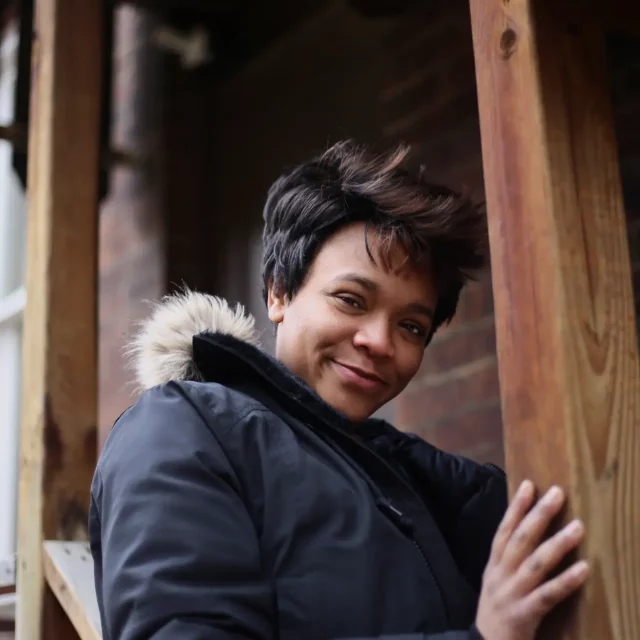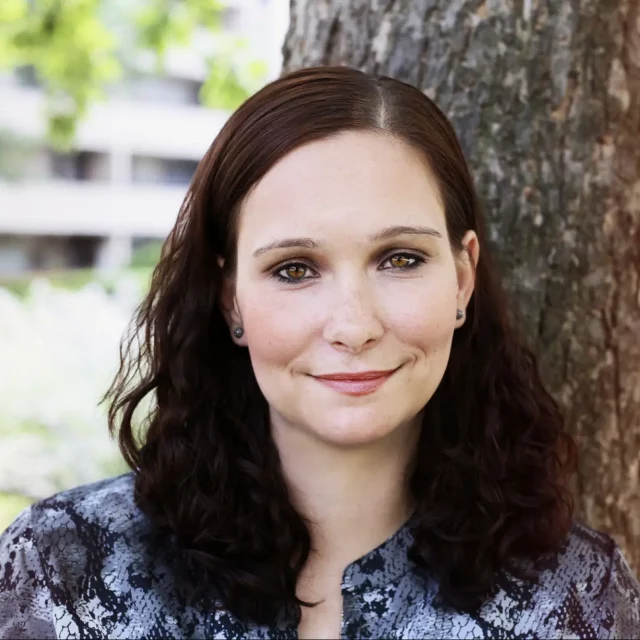In honour of Black History Month and this year’s theme of Black resistance, we’re sharing powerful stories of resilience from former youth in care, our partners serving Black and biracial youth and others from across our network.
Recognizing that Black youth are significantly overrepresented in the child welfare system, Children’s Aid Foundation of Canada is deeply committed to naming and addressing the barriers that disproportionately impact this population — including systemic racism, intergenerational trauma, poverty and other factors.
Working together with partners, donors and first voice advocates, our ultimate goal is to reduce the number of Black youth entering into and growing up in government care.
In the first article of our Black History Month series, we’re sharing the story of Jemal — a former youth in care whose journey is itself an expression of Black resistance against the odds, and who personifies the Kwanzaa principle of ujima — collective work and responsibility.

It started out as a perfectly normal day for Jemal. Then 13 and in his final weeks of Grade 8, he got ready for school at the foster home he’d been living in for over a decade. He said goodbye to his foster parents and headed out the door.
He had no idea he’d never see them again.
By the time the school day was done, Jemal’s foster home had been shut down. He wasn’t allowed to return to the place he’d called home since he was three years old, and he never heard from his foster parents again. He later learned that they’d been forced to close in the wake of allegations of abuse.
“It was very shocking,” says Jemal, now 33. “I thought I’d found some permanence with this family. I didn’t realize until I was an adult that I was actually experiencing a lot of physical and emotional abuse.”
The sudden upheaval threatened to throw him off balance. From his long-term placement in Bradford, he was sent to Toronto where he moved between different foster homes. At 17, he moved out on his own and received government support until he “aged out” of the child welfare system.
“I was forced to grow up really quickly,” he says. “I was already taking care of myself in high school when most of my friends were still living at home, and I had to advocate for myself in ways most people my age never had to think about.”
As a Black youth growing up care, Jemal faced significant obstacles on the road ahead. Not only are Black youth overrepresented in the child welfare system as a result of anti-Black racism, they are also more likely than their peers to be charged with criminal offences, to be disciplined for problematic behaviour and to experience negative interactions with law enforcement.
Resisting the odds stacked against him, Jemal dug deep to stay focused on his goals. He also found steady support from Children’s Aid Foundation of Canada, which helped him pursue his interests and access a post-secondary education.
“The Foundation was amazing about providing me with resources I wouldn’t otherwise have had access to,” he says. “When I was a teenager, I wanted to play football but couldn’t afford the costs. The Foundation provided me with funds to do that. Later, they provided funding to help me apply to colleges and then bursary support for my tuition.”
Determined to overcome his circumstances and achieve stability, Jemal persisted with his education and developed critical life skills.
Today, he is proud to work as a law enforcement officer with Metrolinx — and he’s looking forward to starting a family of his own. Jemal recently got married to his long-time partner, whom he met while attending Soul Journey, a program funded by the Foundation that provides educational and cultural awareness opportunities for Black youth in care. As participants, they were able to connect with parts of their shared history while visiting prominent sites and bearing witness to the unique history of the African diaspora in North America.
“I was born to teenage parents, one of whom, my mother, was involved with the child welfare system herself. My partner’s father was deported, and their mother also suffered from addiction issues. We’re both motivated to raise our future kids in a two-parent household, in a stable family environment,” he says. “It’ll be an interesting experience, but hopefully, we can support each other in healing, break free from the intergenerational trauma, and learn from our parent’s shortcomings and do better.”
Reflecting on his time in care, Jemal says he would encourage young people currently navigating the child welfare system to learn to advocate for themselves.
“Be involved in your care plan, be involved in future planning for yourself,” he says. “Connect with anyone you can, including social workers, counsellors, mentors, extended family members and other trusted adults — people who can be your guiding stars and help you figure out what decisions are right for you.”
Thank you, Jemal! Check back for more Black History Month articles and learn more about Children’s Aid Foundation of Canada and the young people we serve.



